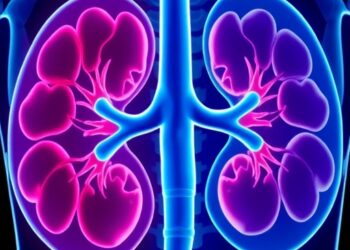BOSTON – A new study led by investigators from Mass General Cancer Center, a founding member of the Mass General Brigham healthcare system, reveals that statins—commonly used cholesterol-lowering drugs—may block a particular pathway involved in the development of cancer that results from chronic inflammation. The findings are published in Nature Communications.
BOSTON – A new study led by investigators from Mass General Cancer Center, a founding member of the Mass General Brigham healthcare system, reveals that statins—commonly used cholesterol-lowering drugs—may block a particular pathway involved in the development of cancer that results from chronic inflammation. The findings are published in Nature Communications.
“Chronic inflammation is a major cause of cancer worldwide,” said senior author Shawn Demehri, MD, PhD, a principal investigator at the Center for Cancer Immunology and Cutaneous Biology Research Center of Massachusetts General Hospital and an associate professor of Dermatology at Harvard Medical School. “We investigated the mechanism by which environmental toxins drive the initiation of cancer-prone chronic inflammation in the skin and pancreas,” says Demehri, who is also the Bob and Rita Davis Family MGH Research Scholar 2023-2028. “Furthermore, we examined safe and effective therapies to block this pathway in order to suppress chronic inflammation and its cancer aftermath.”
Demehri and his colleagues’ study relied on cell lines, animal models, human tissue samples and epidemiological data. The group’s cell-based experiments demonstrated that environmental toxins (such as exposure to allergens and chemical irritants) activate two connected signaling pathways called the TLR3/4 and TBK1-IRF3 pathways. This activation leads to the production of the interleukin-33 (IL-33) protein, which stimulates inflammation in the skin and pancreas that can contribute to the development of cancer.
When they screened a library of U.S. Food and Drug Administration–approved drugs, the researchers found that a statin, pitavastatin, effectively suppresses IL-33 expression by blocking the activation of the TBK1-IRF3 signaling pathway. In mice, pitavastatin suppressed environmentally-induced inflammation in the skin and the pancreas and prevented the development of inflammation-related pancreatic cancers.
In human pancreas tissue samples, IL-33 was over-expressed in samples from patients with chronic pancreatitis (inflammation) and pancreatic cancer compared with normal pancreatic tissue. Also, in analyses of electronic health records data on more than 200 million people across North America and Europe, use of pitavastatin was linked to a significantly reduced risk of chronic pancreatitis and pancreatic cancer.
The findings demonstrate that blocking IL-33 production with pitavastatin may be a safe and effective preventive strategy to suppress chronic inflammation and the subsequent development of certain cancers.
“Next, we aim to further examine the impact of statins in preventing cancer development in chronic inflammation in liver and gastrointestinal tract and to identify other novel, therapeutic approaches to suppress cancer-prone chronic inflammation” said Demehri.
Authorship: Jong Ho Park, Mahsa Mortaja, Heehwa G. Son, Xutu Zhao, Lauren M. Sloat, Marjan Azin, Jun Wang, Michael R. Collier, Krishna S. Tummala, Anna Mandinova, Nabeel Bardeesy, Yevgeniy R. Semenov, Mari Mino-Kenudson, and Shadmehr Demehri.
Disclosures: Disclosure forms provided by the authors are available with the full text of this article at https://doi.org/10.1038/s41467-024-48441-8.
Funding: Research support was provided by the Burroughs Wellcome Fund, the LEO Foundation, the Sidney Kimmel Foundation, and the National Institutes of Health.
Paper cited: Park JH et al. “Statin prevents cancer development in chronic inflammation by blocking interleukin 33 expression.” Nature Communications DOI: 10.1038/s41467-024-48441-8.
###
About Massachusetts General Hospital
Massachusetts General Hospital, founded in 1811, is the original and largest teaching hospital of Harvard Medical School. The Mass General Research Institute conducts the largest hospital-based research program in the nation, with annual research operations of more than $1 billion and comprises more than 9,500 researchers working across more than 30 institutes, centers and departments. MGH is a founding member of the Mass General Brigham healthcare system.
Journal
Nature Communications
Article Title
Statin prevents cancer development in chronic inflammation by blocking interleukin 33 expression
Article Publication Date
30-May-2024




